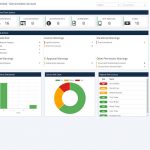Industry Talk
Regular Industry Development Updates, Opinions and Talking Points relating to Manufacturing, the Supply Chain and Logistics.Why You Should Optimize Your PC Regularly and How to Do It

Every computer system gets older or outdated and, at some point, experiences a drastic slowdown in performance. So what could be the cause? Your operating system, which might not be the most recent version, could also have an effect on how well your computer performs. Fortunately, you can enhance the performance of your computer without going over budget.
Most people think that buying new hardware might seem like the obvious answer. But there are simple yet affordable fixes you can do to prolong the life of your computer. When it comes to keeping your computer operating smoothly for many years to come, even little tweaks from any Free PC Optimizer for Windows can have a significant impact.
Although many people experience subpar computer performance, there are many ways to optimize your computer and restore its smooth operation. In this post, we will look at some suggestions for maximizing computer performance and making the most of your device. So, let’s find out how you can optimize the performance of your computer.
Why Should You Optimize Your PC?
Optimization is similar to regular computer maintenance. Every machine or piece of equipment that we use on a daily basis will eventually become obsolete. For these machines to operate properly, they need to be serviced, maintained, and upgraded on a regular basis. Optimization is the process of giving a device what it needs in order to maintain optimal performance.

When you use a PC, the GPU, storage, processor, and other components all operate simultaneously. Over time, this synchronization frequently wears out, so you should keep your PC optimized. Preserving your computer’s performance is one of the main reasons you should keep it optimized. Here are some reasons why you should optimize your computer on a regular basis.
- To maximize the use of processors and memory, among other resources.
- To stop the computer from experiencing common problems like blue screen errors or slow freezing.
- In order to prevent problems such as registry errors, malware attacks, and file corruption.
- Eliminate any unnecessary audio and video files from your PC to refresh its memory. Additionally, this aids in reclaiming space that has been used needlessly.
Apart from these, it makes more sense to maximize the performance of PCs because not everyone can afford to upgrade to new hardware every year. You can easily manage the resources and carry out even complex operations on your PC by optimizing it.
How to Optimize Your Computer’s Performance?
Although ineffective and slow computers can reduce productivity and irritate users, there are a number of ways to optimize your computer. This post will discuss some of the improvements you can make to your computer as well as additional ways to boost its overall performance.
● Keep Your Software and Operating System Up to Date:
Keeping your operating system and software updated is one of the simplest ways to maximize the performance of your computer. The overall performance and stability of your computer can be enhanced by software updates, which frequently include security patches, bug fixes, and performance enhancements.
● Eliminate Unnecessary Programs and Files:
Removing unnecessary programs and files is another way to improve computer performance. Your computer may run slower if it has programs and files that are not being used that occupy important hard drive space. Programs that you no longer need can be removed using the built-in uninstall tool on your computer. You should also routinely remove outdated files and folders.
● Use a Disk Cleanup Tool:
Your computer’s speed may decrease over time as a result of system files, outdated downloads, and temporary files building up. To clear up space on your hard drive and get rid of these superfluous files, use any disk cleanup tool.
● Upgrade Your Hardware:
If your computer is still lagging, it might be time for a hardware upgrade. To enhance the speed and performance of your computer, think about replacing your old hard drive with a solid-state drive (SSD). If you want your computer to perform better when running demanding programs or playing games, you should also think about upgrading your RAM or graphics card.
● Use Antivirus Software:
Malware and viruses have the power to drastically reduce your computer’s performance and possibly even harm it. Make sure your antivirus software is up to date and use it to regularly scan your computer for viruses and other malicious software.
● Limit Startup Programs:
Your computer might start a number of background programs automatically when it boots up. These applications can drain important resources from your computer and negatively impact its performance. Reduce the number of apps that open when your computer first boots up to maximize its performance. Mac users can use the Login Items feature in System Preferences, while Windows users can manage startup programs using the Task Manager.
Conclusion
You should not be concerned if your computer is operating slower than usual or has trouble loading apps. To improve its efficacy, often a few minor adjustments are sufficient. But before you do anything, make sure to look for any viruses, spyware, or malware that might be the source of your lag or slow speeds. After taking care of any security risks, you can investigate additional possible reasons for poor computer performance in order to enhance and preserve your computer’s functionality.










